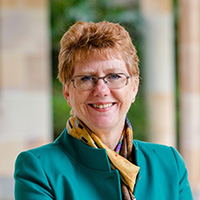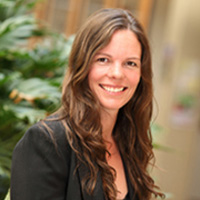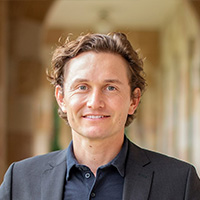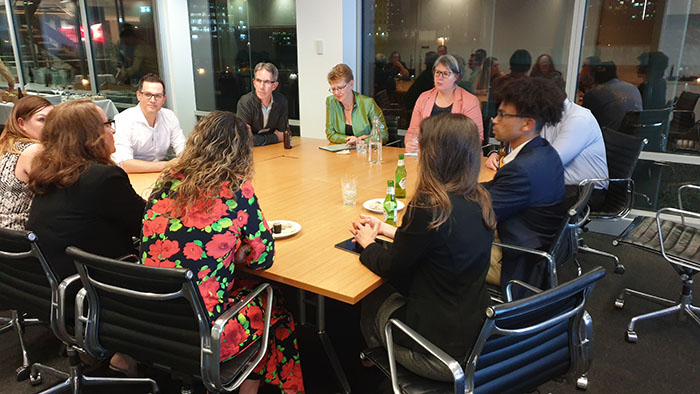Accelerating the Workforce Transformation
How do we prepare the workforce in the infrastructure industry to be successful as their work changes? Societal demands will require design, digitalisation and delivery of sustainable solutions. There will be process changes to enable design, delivery and maintenance of infrastructure assets in a decarbonised and circular economy. Increasing digitalisation of all of these processes will be both an opportunity and a challenge for the industry. Workforce adoption of both digital technology and sustainability practices by the infrastructure industry will be central to the success of this transition. This challenge will need to be met by the many players in the full infrastructure value chain, from owners, designers and constructors to users and maintainers over the asset lifecycle.
This case study followed the execution of a sustainability and digital transformation strategy in the infrastructure industry. Co-funded by the SIRH and engineering company KBR-IS, the research sought to understand how all levels of the company were planning, implementing and experiencing the change process. The first outcome of the project was company specific guidance to support the realisation of transition ambitions. This highlighted that while work within the organisation was able to build on enthusiasm and passion for sustainable solutions and establish solid examples of fully digitalised projects, embedding these changes across the organisation was challenging. The industry context and the needs of governments and other large infrastructure clients have a large effect on how deep and how fast the transition can progress.
Further work will address research insights on how the industry more broadly is approaching and managing sustainability and digital transitions from a change management, workforce and skills perspective.
Researchers
 Dr Tracy Martin
Dr Tracy Martin
Research Fellow
Faculty of Business, Economics and Law
 Dr Cristyn Meath
Dr Cristyn Meath
enior Research Fellow and Lecturer
Faculty of Business, Economics and Law
 Dr Jurij Karlovsek
Dr Jurij Karlovsek
Senior Lecturer, School of Civil Engineering
Faculty of Engineering, Architecture and IT
As we know from previous significant industry transitions throughout history, workforce adoption of changing practices is central to the success of this change. Some workers roles will disappear, others will change to some extent and new roles and skills will emerge to meet the needs of the future. We need to ensure that outcomes experienced by displaced workers and the communities affected are just and fair and we have many historical experiences to learn from. However, the scale and urgency of change required in the infrastructure industry in the face of ubiquitous workforce shortages also raises new questions, such as how do we accelerate the effective transformation of the infrastructure industry workforce, given the constraints and complications of the industry and national context?
This project is reviewing the academic and grey literature to understand and identify evidence based change practices that can help the current and emerging workforce adopt new ways of working to deliver the sustainable infrastructure transition.
Researchers
 Dr Tracy Martin
Dr Tracy Martin
Research Fellow
Faculty of Business, Economics and Law
 Dr Cristyn Meath
Dr Cristyn Meath
Senior Research Fellow and Lecturer
Faculty of Business, Economics and Law
 Dr Jurij Karlovsek
Dr Jurij Karlovsek
Senior Lecturer, School of Civil Engineering
Faculty of Engineering, Architecture and IT
 Guy Preston
Guy Preston
Research Assistant
Events
The UQ Sustainable Infrastructure Research Hub (SIRH) and global professional services firm ARUP, brought a group of interested stakeholders together to discuss the urgency to improve sustainability outcomes in the infrastructure industry.
Read more about the event outcomes.

Sustainability and the digitisation of engineering work will require the engineering workforce to learn new skills while maintaining core competencies that ensure factors of safety. In particular, experience engineering shape many of the important, early decisions that can affect the sustainability and digitalisation outcomes of their projects. This project has developed a blueprint for delivering a set of flexible and stackable learning experiences to help practicing engineers at all career stages to increase their knowledge and skill in delivering engineering work in this multi-disciplinary context. Key outcomes are:
- A competency framework that builds sustainability and digitalisation around a core of engineering skills. This is ready for further industry testing.
- The foundation of a user-centred learning design approach tailored to engineers and the infrastructure project environment.
- An understanding of the industry challenges and opportunities for the delivery of feasible solution.
Work on scope and market feasibility of this project continues.
Researchers
 Dr Tracy Martin
Dr Tracy Martin
Research Fellow
Faculty of Business, Economics and Law
 Dr Cristyn Meath
Dr Cristyn Meath
Senior Research Fellow and Lecturer
Faculty of Business, Economics and Law
 Dr Jurij Karlovsek
Dr Jurij Karlovsek
Senior Lecturer, School of Civil Engineering
Faculty of Engineering, Architecture and IT
Ms Josephine Echberg
Publications
Transition to Sustainable Infrastructure Competency Framework for Engineers (PDF, 1.8 MB)
The complex nature of infrastructure assets makes it difficult to measure their sustainability inputs, outputs and impact from design through ongoing operation to decommissioning. Digital technologies are increasingly being used to replicate these physical assets before and after they are built to support design and ongoing management decisions and optimisation of sustainability outcomes. However, this requires the effective adoption of an extensive suite of digital systems by a wide range of stakeholders and users. While the social and political case for the adoption of sustainability practices is becoming better accepted, there are still questions about the organisational practices that help and hinder the adoption of digital technologies to deliver sustainable infrastructure now and for its future.
This project is reviewing the academic and grey literature from the engineering, digital and design anthropology and business management fields to understand the management and user practices that encourage adoption across all the stages of design, build, operation and decommissioning of infrastructure assets.
Researchers
 Dr Tracy Martin
Dr Tracy Martin
Research Fellow
Faculty of Business, Economics and Law
 Dr Jurij Karlovsek
Dr Jurij Karlovsek
Senior Lecturer, School of Civil Engineering
Faculty of Engineering, Architecture and IT
